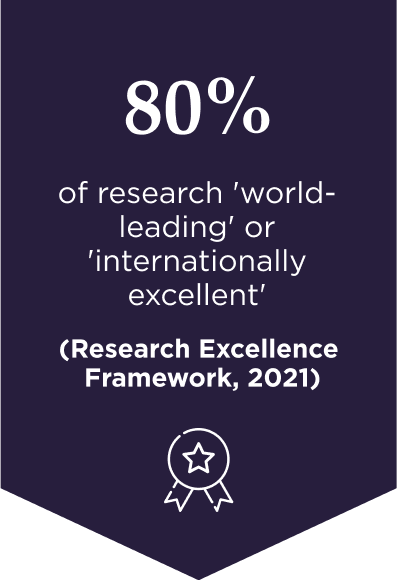How do operations and supply chain management work together?
Posted on: July 7, 2022
Operations management and supply chain management are areas within a business that often work in parallel and whose processes also often overlap. This is because operations strategy is heavily reliant on the timelines of the supply chain.
The Chartered Institute of Procurement & Supply (CIPS) states on its website that “Operations management is the business function responsible for designing and managing products, process, services and supply chains.” It’s true that depending on the size of the business and how extensive the supply chain is, sometimes the operations team will manage the supply chain. However, in some companies, there will be an entirely separate supply chain management team.
What are the differences between operations management and supply chain management?
A simple rule of thumb is that the supply chain is primarily concerned with managing processes outside of the company. Supply managers deal with negotiating supplier contracts, the sourcing of raw materials, and the logistics of delivering manufactured products to distributors.
Operations managers are more involved with decision-making in the day-to-day workings of the company and focused on developing the product including tasks such as quality management. This means that the operations manager works collaboratively with team members like buyers and planners on sales forecasting based on coordinating the lead times of suppliers. Operations is very much responsible for ensuring that customer needs are met on time. The role also demands good working knowledge of lean and agile concepts to help cut costs and keep operations nimble and responsive in times of flux.
Global supply chains have felt immense pressure throughout the pandemic with trade routes and ports affected by socio-political events and worker shortages, while raw materials have been hit by climate change and fluctuating prices. Cybercriminals have taken advantage of this and there has been an increase in cyberattacks particularly those that use malware to infiltrate systems. Just one attack on a single supplier can compromise the whole network of providers. For this reason, supply chain professionals are increasingly expected to have a sound understanding of risk evaluation and cybersecurity requirements. This includes reviewing the precautions and protocols of supply partners and ensuring that they’re of a high enough standard to avoid any breaches of the supply chain.
What is the role of the supply chain in operations?
The five key elements of supply chain management are strategy, sourcing (or procurement), production, distribution, and returns. The storage of raw materials and warehousing of finished products also increasingly factor as large companies look to maintain raw materials nearer to manufacturing plants and finished products closer to destination markets. This saves on shipping costs and speeds up delivery times in high demand periods.
In the UK alone, warehouse space has increased by 73% since Covid-19 restrictions were imposed in March 2020 according to BNP Paribas Real Estate Research. Even with this increase, though, warehouse space is thin on the ground with uncertainty in the industry still high post-Brexit and online shopping demands showing no signs of abating.
These pre-emptive actions support operations teams in meeting customers’ needs and can offer a competitive advantage. However, these actions can also lead to more complex inventory management. Both operations and supply chain management teams need to work together to avoid an excess of materials and products which can be as problematic as scarcity in creating additional costs and waste. Not only does this hit the bottom line of any company but it can also have an impact on sustainability efforts. It’s certainly a challenging tight rope to walk which is why collaboration and cooperation is so important in these vital functions.
How can operations and supply chain management be improved?
Third-party logistics (3PL) have become an attractive option during the shifts that have occurred since the pandemic started in 2020. This is because 3PLs are sometimes better equipped to deal with the complexities of a larger logistics network so can negotiate better routes and prices for international carriage even at short notice. Not only has the demand for ecommerce increased, but so has the desire to have orders delivered in 24-hour and 48-hour windows.
Logistics management involves many variables and juggling risk management becomes a full-time job in times of uncertainty. Some companies would rather outsource this job and all the associated processes, such as returns, to a 3PL which helps the supply chain and operations management teams to focus their energies on the functions that they have more control over.
Advances in technology such as robotics, block chain, and artificial intelligence have all been touted as panaceas to supply chain, and therefore, operations issues. Although there are many instances of these technologies being successfully harnessed (Amazon being a leader in the field) the industry is still adjusting and getting up to speed with the permanent changes that may need to be made. Robots are certainly used in warehouse management systems to great effect.
Mindy Davis who is Vice President of SAP told Supply Chain Digital magazine that “Robotics is an interesting one … It’s kind of counterintuitive as to how it works because you’d think warehouse robotics are simply a means of reducing the need for staff. But actually, it can help you scale your workforce. As companies grow, they can order robots for any task that they need to take care of on the plant floor or in the warehouse.” This hybridised approach offers warehouse workers a better level of wellbeing in the workplace with robots taking on more strenuous or tedious jobs and streamlining operations.
Legitimise your skills, gain an MSc Management and Sustainability
With global freight transportation responsible for 8% of carbon emissions (rising to 11% if logistics sites are included) according to DHL, the demand for sustainable management solutions is high. Factor in the increased demand for freight shipping from both businesses and consumers, and innovations that go beyond basic carbon offsetting are vital to international commerce.
Today’s supply chains are no longer linear, they are sophisticated networks that can be more flexible and efficient. But how do businesses cut their emissions from the outset while delivering value to the customer? How can blockchain offer more transparency and fairer trade all along the supply chain? Find out more about these challenges and potential solutions with a 100% online part-time MSc Management with Sustainability. Register your interest today and take the first step to gaining a competitive edge in the industry.



